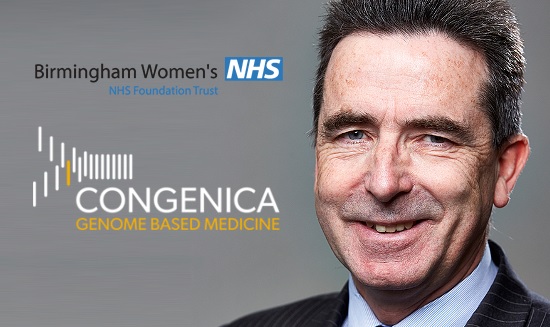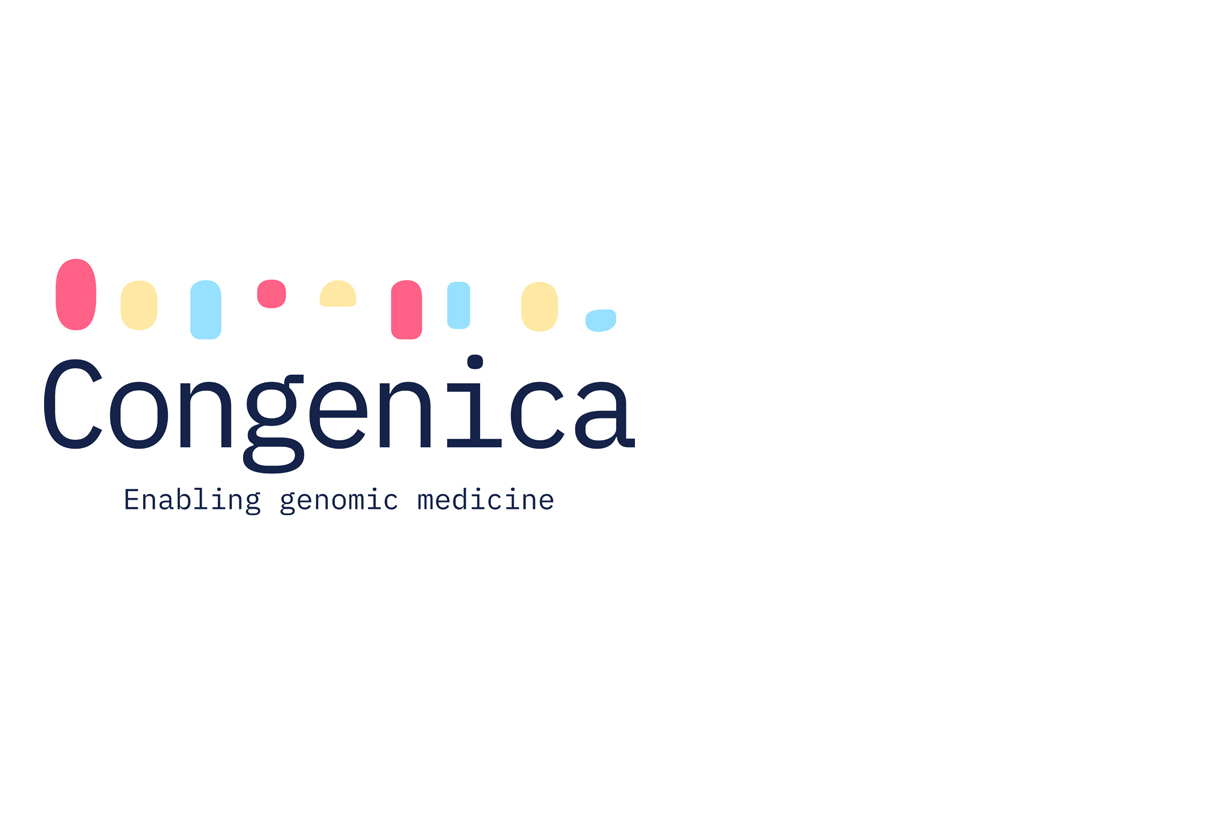
BWH adopts Congenica’s Sapientia for gene-disease insights that reclassify disease
Birmingham Women’s Hospital (BWH) has adopted a radical new technology to make it easier to identify rare diseases by their genetic causes, leading to a faster and more accurate diagnosis for the patient. The technology being used to do this is called Sapientia™ and it is facilitating the reclassification of disease.
Professor Michael Griffiths (pictured above) is Clinical Director for Genetics and Pathology at BWH and Director of the West Midlands Regional Genetics Laboratory, one of the largest and most comprehensive genetics testing services in the UK.
He says: “Many diseases have very similar symptoms, so diagnosis often starts by trying to eliminate the more common or most serious conditions. This is difficult for the rare diseases that we know so little about and that is why genetic testing plays an important role in gaining an accurate diagnosis.”
80% of rare diseases affect children and currently it can take an average seven years of testing to get a diagnosis. Sadly seven years is simply too long to wait for treatment and the impact of this can be devastating for the whole family.
Professor Griffiths explains: “In a family with a rare disease an accurate diagnosis is critical. Without this knowledge the diagnostic odyssey continues. With a diagnosis the family will have realistic prognostic expectations, information on reproductive options, and can focus more on management of the condition.”
Professor Griffiths says that the laboratory has been chosen as one of the first centres to offer the new Sapientia technology, which is able to analyse and interpret whole genome and exome data and highlight mutations in a faulty gene that may be the cause of the disease.
In the last three years there has been an exponential growth in genetic knowledge and this has seen the identification of nearly 30 new disease genes a month, creating a major challenge for NHS diagnostic services. At present testing for over 600 disorders is available within the NHS, but this represents only a quarter of the known disease genes and these tests are performed step-wise. The introduction of whole genome sequencing has the potential to improve the quality and speed of diagnosis and reduce the cost.
He says: “Improving knowledge of gene-disease associations has the potential to change the way in which some diseases are classified, with the emphasis on the cause rather than the symptoms or clinical reason for referral.”
Sapientia has been developed by Congenica, a spinout from the Wellcome Trust Sanger Institute, and is the interpretation platform selected by Genomics England for the 100,000 Genomes Project. Sapientia is being used within the project to give clinicians access to a wider data set through links with other UK centres.
Congenica CEO, Dr Tom Weaver, says that many rare developmental diseases show a range of symptoms and it is common for a child to visit many different consultants, each with a specialism in a different area, before the underlying cause of the problem is identified.
He says: “Some conditions are so rare that a health professional may only see one or two cases in their careers. Sapientia collates information about how a disease presents itself in different individuals, the phenotype, and links this to information about the gene mutation and other sources of information from multiple international databases and published literature. Bringing this background information together in one place can help the clinical team make a confident diagnosis.”
Professor Griffiths says access to this anonymised information will benefit patients:
“By pulling together information relating to the clinical reason for referral, known as deep phenotyping, Sapientia will provide consultants with access to a knowledge-base to compare with their patient. This has the potential to improve the speed of diagnosis.”
The technology will continue to be developed to improve understanding of the impact that a faulty gene has on the body, leading to new insights for treatment. Congenica has recently been awarded an Innovate UK grant to support these developments.
This has been welcomed by Professor Griffiths: “If a genetic cause of a disease can be determined, then through the increased understanding of the condition, an opportunity to develop potential therapies through new or re-purposed existing drugs will be created.”
Find out more about Birmingham’s Women’s Hospital here.



